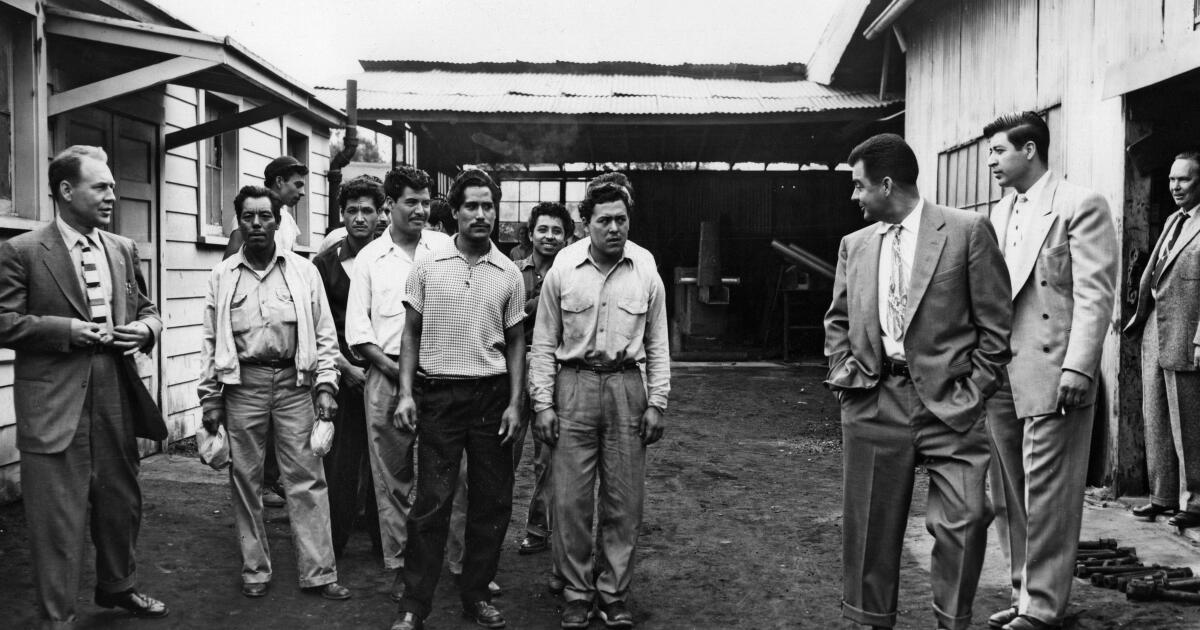On August 28, 1954, a 15-year-old boy named Jimmy Rhoades was apprehended by immigration agents while working in an orange grove in San Juan Capistrano. This incident has resurfaced as a poignant reminder of ongoing immigration enforcement practices in the United States, particularly under the Trump administration. During a raid, workers, primarily Mexican nationals, fled into the groves, seeking refuge. Rhoades, however, was discovered hiding inside a spraying rig and subsequently detained without inquiry.
The raid’s aftermath saw Rhoades subjected to an extensive 11-hour ordeal. He was transported to an immigration processing center in Chula Vista, where he repeatedly asserted his U.S. citizenship. After hours of detention, officials finally verified his claims and released him, but not without complications. His employer had to travel from northern Orange County to pick him up, while three of his colleagues were deported.
This incident is part of a broader pattern of immigration enforcement that has intensified in recent years. A ProPublica investigation revealed that over 170 U.S. citizens were detained by immigration authorities in 2023 alone. The historical context of such actions harkens back to events like Operation Wetback in the 1950s, which aimed to address illegal immigration through aggressive tactics.
The parallels between Rhoades’ experience and current immigration policies raise questions about the treatment of individuals caught in the enforcement net. During the 1954 raid, Rhoades’ parents sought legal recourse, contemplating a lawsuit over issues such as “alleged kidnapping” and “false imprisonment.” This was met with skepticism from immigration officials, who initially dismissed the claims.
In a statement, Herman R. Landon, the Los Angeles-area director for Immigration and Naturalization Services, claimed Rhoades provided misleading information that allowed other workers to escape. He suggested that had Rhoades been older, he could have faced prosecution. This response reflects a continued trend where immigration authorities often prioritize enforcement over individual rights.
Despite the trauma of his experience, Rhoades’ family ultimately chose not to pursue legal action. Rhoades’ mother emphasized that her son was unharmed, expressing hope that no other American child would face such a situation. This sentiment resonates with many families who fear the impact of immigration enforcement policies.
As the U.S. grapples with immigration issues, the historical context serves as a crucial reminder of the consequences of stringent enforcement. The Rhoades case exemplifies how individuals, regardless of their citizenship status, can become victims of a system that often prioritizes deportation over due process.
Reflecting on the past, it is clear that the lessons learned from incidents like Rhoades’ detention remain vital in discussions about contemporary immigration policies. The hope is for a future where such episodes become obsolete, and the rights of all individuals, regardless of their background, are respected and upheld.







